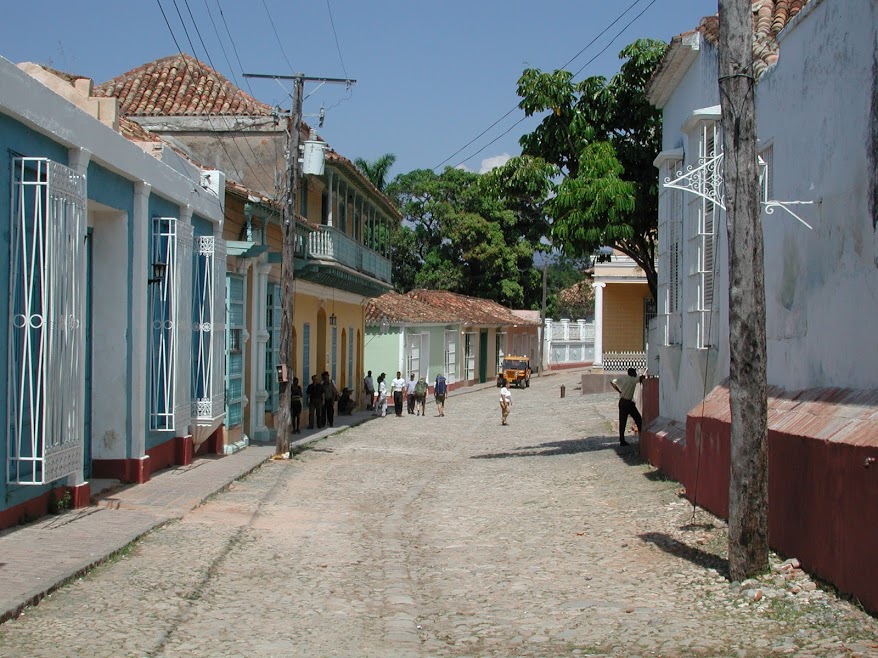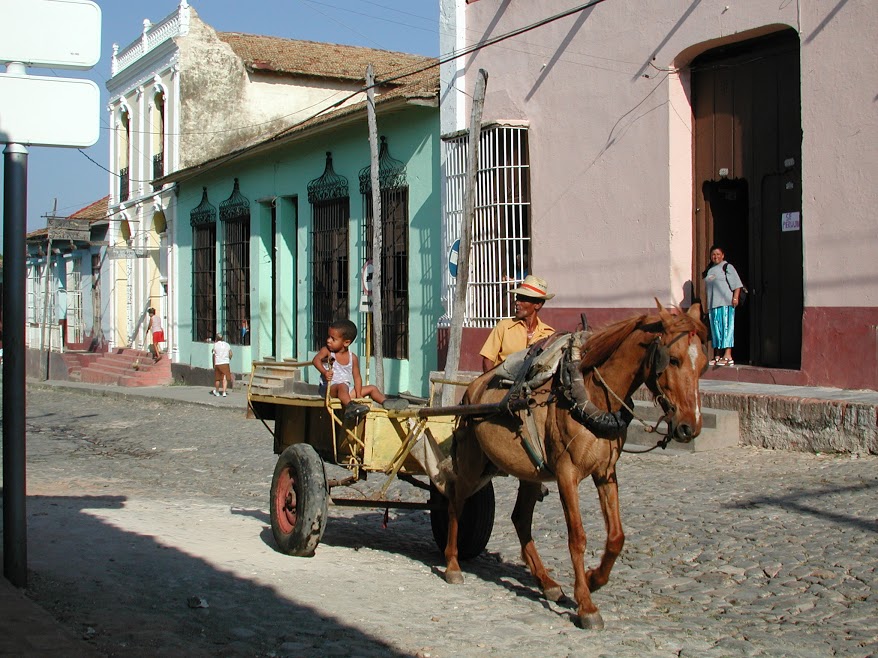Trinidad, Sancti Spiritus, Cuba
21 March 2002Looking down on the ocean from the rolling hills a kilometre away, Trinidad is a small, traditional town whose population of 50,000 takes great pride in its home. Founded by Diego Velásquez in 1514, Trinidad became a stopover for explorers and trading ships travelling to and from México. During the 17th and 18th centuries, its economy largely depended on trading contraband with pirates. The buildings are in incredibly good shape for their age, most of which are at least two centuries old. It’s not too tough to see why Trinidad is now a UNESCO World Heritage Site.

Trinidad is about five hours from Havana by bus, and as with everything in Cuba, there are two buses: one for Cubans, with a several hour long line-up, and one for people with dollars, with basically no wait at all. Upon pulling into Trinidad the bus was swarmed by masses of locals offering a room in a casa particular. We ended up being shown one house, but it had been freshly painted that afternoon and the fumes were pretty rough, so we set out wandering down the streets in the dark. By sheer chance, we ran into an old grandfather carrying a bucket and pushing his bike up the rickety cobblestone streets and when we asked him if he knew of any places to stay he said that in fact, we could stay at his house. This is how our planned two-night stay in Trinidad ended up turning into a week-long stay in paradise.
Roberto and Elda, their daughter Mercedes, her husband Eddy, and their 11-year-old son Saúl made our stay in Trinidad one of the most relaxing visits we had to anywhere in our travels. We would have breakfast every morning in a little courtyard off to the side of the house, spend the mornings wandering the cobblestone streets in search of pizza, and the evenings falling asleep to the sound of Cuban salsas, merengues, and cha cha chas drifting through the window from La Casa de la Trova across the street.

While most of the old town is centered around the main plaza, cathedral, and clock tower, most of the action seemed to center around the plaza in the newer part of town down the hill. Old men sitting on park benches sharing a bottle of rum, school children eating peso ice cream, and the occasional black market cigar salesman trying to pass off some cigars smuggled out of the local factory all milled about the plaza in the hot, sticky heat. A bunch of us sat on our park bench watching the old men on the bench across from us get progressively more drunk from their homebrew, before eventually falling asleep. One thing that anyone visiting Cuba can be assured of is eventually being offered a taste of homemade rum. My guess is that neither the recipe nor the distilling of this rum has changed much over the past few centuries, so you can be assured that your experience will be as blindingly nerve-wracking as that of the colonial sailors plying the waters of the Caribbean in the 1600s. Following the initial jolt of fermented cane sugar hitting your stomach like a rock is the slow nauseating feeling of vertigo creeping over your body; after that, a strange queasiness, and finally recovery and swearing it off for life… or at least the next day.
A few days into our stay in Trinidad, as we walked down a dark street off the plaza, we heard music pouring out through a half-open gate. Peering inside we were greeted with the sight of thirty or so people packed into a small dirt courtyard, and a small band of grizzled 80-year-old men playing salsas on their guitars and trumpets. People had pulled up some old wooden benches and were serving mojitos made (I swear) straight rum, some sugar, and crushed mint. A woman named Blanquita invited us in, offered us some mojitos and yanked us up off the bench to teach us some salsa while chickens scuttled around our feet. It was probably my most vivid memory of Cuba.